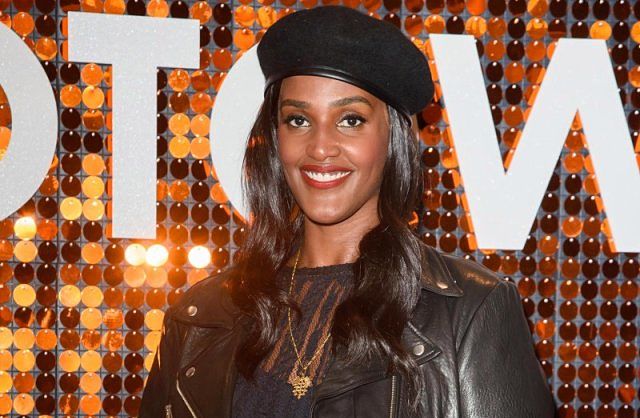 Ethiopia Habtemariam, the president of Motown Records, has spent the past year assisting her artists in navigating the painful reality of life offstage while retooling album-release plans. Below is Time Magazine's interview with Ethiopia. (Photo: Camera Press/Redux)
Ethiopia Habtemariam, the president of Motown Records, has spent the past year assisting her artists in navigating the painful reality of life offstage while retooling album-release plans. Below is Time Magazine's interview with Ethiopia. (Photo: Camera Press/Redux)
TIME
The pandemic rocked the music industry. Live performances, which are such a critical part of driving the business (and making fans euphoric) were quickly shut down last year. Concerts are going to be slow to return. (Who’s up for crowding next to sweaty strangers, yelling at the top of their lungs?) Ethiopia Habtemariam, the president of Motown Records, has spent the past year assisting her artists in navigating the painful reality of life offstage while retooling album-release plans. She helped one artist cope with depression when a much anticipated record was postponed and, in the outbreak’s early days, counseled another to take the virus more seriously. “There was a lot of misinformation about COVID and communities that it was hitting,” she said. Habtemariam remembers one young artist who was still going out on the town telling her, “Oh no, that’s a rich-people thing.”
While live shows floundered, music delivered comfort to people stuck in their homes and apartments. Total audio consumption, which includes streaming and album sales, was up 11.6 % in 2020, according to MRC Data. And for Habtemariam, 41, the past year helped her ongoing mission to make the legendary Motown brand relevant in today’s culture. Back in 2015, she signed a joint venture with Quality Control Music, an influential hip-hop label based in Atlanta, leading to a string of megahits from hot young artists including the Migos, Lil Yachty and Lil Baby. Lil Baby, an Atlanta rapper, singer and songwriter, had the best-selling album of 2020, according to MRC Data, beating out Taylor Swift and the Weeknd. And Lil Baby’s single “The Bigger Picture,” released after the murder of George Floyd, became an unofficial protest anthem played at marches and rallies throughout the country. It has more than 112 million views on YouTube.
Habtemariam, who started her music career as an unpaid intern at 14, recently joined TIME for a video conversation on the pressures of taking over a storied label, the perils of social media for artists and her favorite live venues.
(This interview with Motown Records president Ethiopia Habtemariam has been condensed and edited for clarity.)
So, what have you been listening to, to get through the pandemic?
I went through a phase around April, May, when I was like going down memory lane of my childhood, reminiscing on songs that I grew up on. Middle school, high school years. And it was actually therapeutic in many ways. It kind of helped me get through a lot of the different emotions and feelings that I was having, and also it reminded me of why I fell in love with music.
Rumor has it that you were a big TLC fan.
I still think that they don’t get the credit they deserve because they were so huge! TLC, Aaliyah, Missy [Elliott], Lauryn Hill—I was a massive Janet Jackson fan as well.
I’m a huge fan of music, period. I’m a daughter of immigrants. My parents are both Ethiopian, and I’m Ethiopian American. I grew up in the South. So here I am, this young girl, with a name like Ethiopia; I was a bit of an alien, but music was my salvation. It was my escape, but it was also a bridge for me to connect and build friendships.
How did the pandemic disrupt your release schedule? You still managed to have one of the biggest albums of the year, with Lil Baby’s My Turn.
I remember it vividly because we scheduled some in-stores for him. I remember coming to Atlanta and making sure everyone had hand sanitizer. And then everything shut down, and we had to really come together to figure out how we were going to move forward.
We put it out Feb. 28, and it was massive. The response was incredible; everything was great. And two weeks later, the world shuts down. One of the things that was in the plan was, of course, a huge tour.
—
Join the conversation on Twitter and Facebook.

























